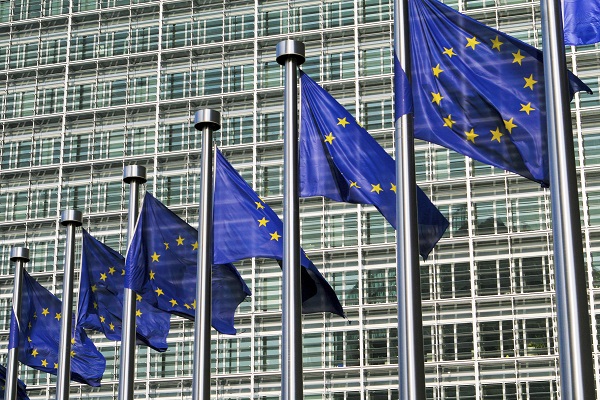
Since the beginning of the Russian military invasion of Ukraine on 24 February 2022, the latter has received support in various ways from European Union (EU) Member States and many other countries worldwide; this support includes measures targeting Russia's economy to dissuade the country from further escalating the war.
However, now in the sixth month of the ongoing war in Ukraine, the continuous geo-political uncertainty has led to an unprecedented rise in the price of energy products, especially fuel and gas, further pushing millions of people around the world into economic hardship.
On Monday 29 August 2022, European Commission President Ursula von der Leyen, in her keynote speech at the Bled Strategic Forum in Slovenia, acknowledged that “[t]he skyrocketing electricity prices are now exposing, for different reasons, the limitations of our current electricity market design. It was developed under completely different circumstances and for completely different purposes. It is no longer fit for purpose”. She also announced: “we, the Commission, are now working on an emergency intervention and a structural reform of the electricity market”.
It is therefore expected that different temporary or emergency interventions will be announced in the short to medium term to further support households and minimise the effects of rising energy costs.
In this regard, Chronicle.lu reached out to the Representation of the European Commission in Luxembourg to learn about the willingness of the European Commission to mandate tax breaks and / or provide funds for individual Member States to help energy-poor households. The Commission representation clarified that the Commission has taken a wide range of measures to help Member States tackle the impact of high energy prices on vulnerable consumers and, referring to the midday press briefing on Tuesday 23 August 2022, noted “we [the Commission] invite the Member States to continue using the Energy Prices Toolbox, which contains measures which directly impact the energy bills paid by European consumers”.
Commenting further on the Commission’s willingness to allow Member States to decrease (temporarily) VAT rates or offer tax rebates for household consumers (related to electricity and / or gas prices), the Commission representation clarified the following measures with regard to VAT and excise duties on energy products.
VAT rules on natural gas, electricity or district heating: The Commission in its communication on energy prices clarified to the Member States that they may decide - as part of the toolbox at their immediate disposal - to apply reduced VAT rates on energy products as long as they respect the minima of 5% laid down in the EU's VAT Directive and respect their national rate structure (i.e. not having more than two different reduced rates).
Although the newly agreed rules do not permit zero rates on any of these energy products, Member States no longer need to consult the VAT Committee to be able to apply reduced rates on them.
Excise duty rules on energy products: The Energy Taxation Directive (ETD) sets minimum rates for electricity and energy products used for propellant and heating purposes. As a rule, Member States have to respect the minimum excise duty rates set by the current ETD of 2003.
The Directive provides for the possibility for Member States to apply tax exemptions, including for electricity and certain heating fuels used by households and natural gas and liquefied petroleum gas (LPG) used as propellant. Gasoil (diesel) and petrol can be exempted in certain specific cases, such as for use in agriculture or in rail transport.
The Commission representation added that the Commission stood ready to provide guidance to Member States on how to make best use of the legal framework and would assess any requests for exceptional country-specific derogations under Article 19 of the ETD.
When it comes to energy taxation, most Member States currently tax energy products well above the minima laid out in the ETD, according to the Commission representation, athough several have temporarily reduced rates down to or slightly above the ETD minimum levels to mitigate the impact of rising energy prices.
Derogations to reduce excise rates below the EU minima: As indicated in the Communications of 8 and 22 March 2022, the Commission is considering several options for emergency measures, with a view to providing temporary and targeted relief to end-consumers in the short term, strategic autonomy in the midterm and decarbonisation in the long term.
According to the Commission representation, direct and targeted support to vulnerable citizens and businesses can help citizens and businesses struggling with excessive energy prices, without negative spill-over on Member States' common environmental and budgetary perspectives.
However, re-using higher revenues from energy taxes and carbon pricing or from abnormal profits of some energy companies can help to finance targeted and temporary measures in support of vulnerable households and businesses (such as in the form of cheques or refunds). According to the Commission representation, these measures would be a more efficient and effective solution to address energy affordability, without creating adverse incentives for energy consumption and in particular consumption of fossil fuels.
Luxembourg’s Ministry of Energy recently clarified the various measures undertaken to help Luxembourg households to mitigate rising energy prices.








